High-Level Dialogue: Implementation of the UNESCO Open Educational Resources (OER) Recommendation
United Nations Educational, Scientific and Cultural Organization
Session 398
The UNESCO OER Recommendation : Creating Effective Digital Ecosystems for Inclusive Knowledge Societies
This High-Level dialogue will examine how Governments can leverage the 2019 UNESCO OER Recommendation UN instrument.
The discussions will centre on how the Recommendation can guide the crucial digital ecosystems needed for the establishment and maintenance of free, high quality open educational resources and platforms.
OER are recognised as powerful solutions for transforming education, since they enable the expansion of access to quality, innovative, free, accessible, educational resources in different languages, for teachers and learners. To achieve this objective, it is vital to put in place robust mechanisms for OER capacity building, policy development, quality assurance, accessibility and sustainability for educational stakeholders.
The session will also emphasise the need to leverage the UNESCO OER Recommendation 2019 to build stakeholder capacity and the necessity to develop and /implement supportive policies at governmental and institutional levels. This is a solution, a way to ensuring that the innovation and creation, access, reuse, repurposing, adaptation, redistribution, preservation and quality assurance of OER and open digital platforms works.
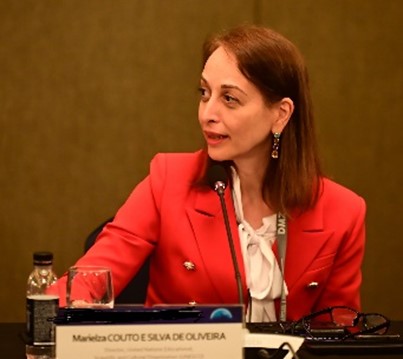
Marielza Oliveira is the Director of the UNESCO Communications and Information Sector’s Division for Digital Inclusion, Policies and Transformation, where she leads the support to Member States to strengthen capacities for access to information, digital inclusion, digital transformation, and protection of documentary heritage.
Ms. Oliveira is also Secretary of the intergovernmental UNESCO Information for All Programme; and the UNESCO Observer in the Internet Governance Forum Multistakeholder Advisory Group (MAG) and Policy Networks on Internet Fragmentation, on AI, and on Meaningful Access; in ICANN; in the Internet & Jurisdiction Policy Network; and in the European Commission’s High-Level group on Internet Governance.
Ms. Oliveira is also the UNESCO representative to the ITU/UNESCO Broadband Commission for Sustainable Development’s Membership Committee. Prior to her current position, she was Director of the UNESCO office covering the East Asian subregion, in charge of all areas of UNESCO’s mandate in China, Democratic People’s Republic of Korea, Japan, Mongolia, and the Republic of Korea.
Her experiences before UNESCO include leading the United Nations Development Programme’s global data analytics and results management at the Executive Office of the Administrator; Associate Director for Governance at UNITAR; oversight and support to multiple UNDP offices and programmes in Latin America; democratic governance programme officer in UNDP Brazil overseeing the fiscal modernization of 7 state Secretariats of Finance, the capital markets regulatory entity, and others; and UNDP Brazil’s campaign manager for the UN Millennium Development Goals. She was also Systems Engineer at the US Army Construction Engineering Research Lab (USACERL), where she developed award-winning decision support and expert systems for the US Department of Defense; senior consultant at Fundacao Dom Cabral in Brazil, advising global corporations on marketing and financial strategy; and Director of Executive Education at Brazil’s Ibmec Business School, in charge of 800+ MBA students across 12 Executive MBA programmes. She holds a Master of Science in Finance and a Ph.D. in Business Administration with a minor in Cognitive Science from the University of Illinois at Urbana-Champaign, USA. Her professional honors include, among others, the 2007 Human Development Awards Special Recognition for Innovation in Human Development Measurement Tool; the 2005 UNDP Administrator’s Award for Innovation and Commitment; the J.M. Jones Award in Business Administration; the selection by Guia da Boa Governança Corporativa Exame as one of the 15 most important corporate governance specialists in the Brazil; and the Commendation Letter for her nomination as the USACERL Researcher of the Year Award.
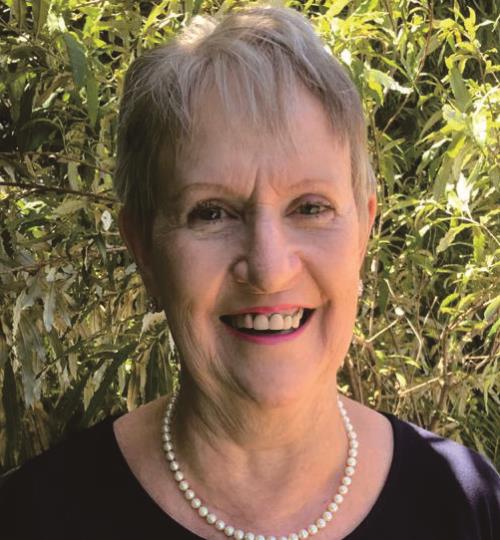
Moira is a Vice President of IFIP (International Federation for Information Processing), and Chair of IFIP IP3. She was awarded the IFIP Silver Core in 2016 for service. She believes that ethical behaviour and leadership are keystones of any profession and works to develop understanding of ethics and the value of the IFIP Code of Ethics.
Moira is an accomplished speaker and has presented at conferences around the world. Notably, she has attended and presented at the WSIS Forum since 2012.
Moira is an independent consultant. Her current work is focused on instructional design and online course development, and she has worked with Subject Matter Experts on diverse topics, including corporate governance. She is also involved with an organisation which focuses on ESG matters, developing resources to help anyone understand ESG and report successfully on their organisation’s achievements in addressing ESG.
Moira is a Professional Member and Fellow of IITPSA (Institute of IT Professionals South Africa), She received the IITPSA Distinguished Service in ICT Award in 2009. She is also a member of ACM and IODSA.
Moira serves on the Council for the National Museum in Bloemfontein, South Africa.
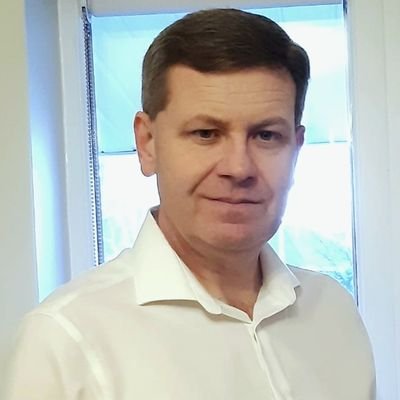
Patrick Paul Walsh is the Vice President of Education and Director of the SDG Academy at UN Sustainable Development Solutions Network (SDSN).
He is on secondment from University College Dublin where is a Full Professor of International Development Studies and Director of the Centre for Sustainable Development Studies. He received a Ph.D. in Economics from the London School of Economics and Political Science. He has held academic positions in Trinity College Dublin, K.U. Leuven, Harvard University and Columbia University. He has also held positions in the United Nations, European Commission, IMF and World Bank. His current focus is on Sustainable Development Education than is informed by Science, Practice and Policy.
Dr. Dominic Orr is Senior Digital Advisor at GIZ and part of the management team of the German Development Cooporation’s digital learning platform atingi. He is Adjunct Professor at the University of Nova Gorica, Slovenia, where he teachers on the Masters for Leadership in Open Education. The atingi platform aims to both serve learners across the world with high value learning experiences and to become a reference model as a learning platform with a tech stack based on open source and OER. Previous to working with GIZ, Dominic Orr was inter alia lead author of the UNESCO Guidelines on the Development of OER Policy, the OECD report OER a Catalyst for Innovation and the report for the German government on the future of higher education in 2030.
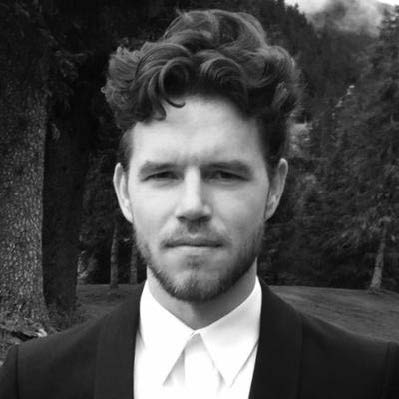
Mark West is Programme Specialist at UNESCO where he examines how technology can improve the quality, equity, and accessibility of learning. He has long been active outlining strategies to make digital solutions more inclusive for people with low literacy skills, helping governments enact policies to ensure that women and girls develop strong digital skills, and advising ministries of education about the uses and misuses of new technologies. Mark has authored several publications, including ‘I’d blush if I could’ which pushed Apple and other large technology companies to make changes to the way AI voice assistants project gender, and ‘Reading in the mobile era’ which brought international attention to the ways governments, schools and families can leverage inexpensive mobile technologies to advance literacy. Recent research has examined the promises of educational technologies against the reality of their large-scale deployment during school closures triggered by the COVID-19 pandemic. His current work also focuses ensuring there are easy-to-find and easy-to-use public platforms for public education on the internet within the framework of the recently-launched UNESCO-UNICEF ‘Gateways to Public Digital Leaning’ initiative. Prior to joining UNESCO in 2011, Mark worked as a teacher and teacher trainer and completed a Fulbright Fellowship in Azerbaijan.
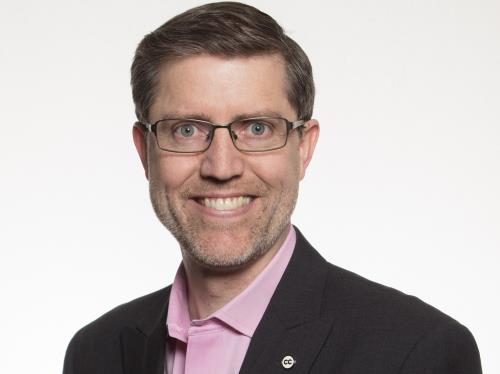
Dr. Cable Green works with open education, science and research communities to leverage open licensing, content, practices and policies to expand equitable access and contributions to open knowledge. His work is focused on identifying complex problems (e.g., UN SDGs) where open knowledge is a critical part of the solution, and then opening that knowledge to help solve the problem. Cable is also a leading advocate for open licensing and procurement policies that ensure publicly funded education, science and research resources are freely and openly available to the public. He has 25+ years of digital learning and open education experience and helped establish the: Open Course Library, Open Up Resources, CC Certificate, CC Open Education Platform, Institute for Open Leadership and the Open Climate Campaign. Cable holds a PhD in education psychology
Dr. Cable Green works with open education, science and research communities to leverage open licensing, content, practices and policies to expand equitable access and contributions to open knowledge. His work is focused on identifying complex problems (e.g., UN SDGs) where open knowledge is a critical part of the solution, and then opening that knowledge to help solve the problem. Cable is also a leading advocate for open licensing and procurement policies that ensure publicly funded education, science and research resources are freely and openly available to the public. He has 25+ years of digital learning and open education experience and helped establish the: Open Course Library, Open Up Resources, CC Certificate, CC Open Education Platform, Institute for Open Leadership and the Open Climate Campaign. Cable holds a PhD in education psychology
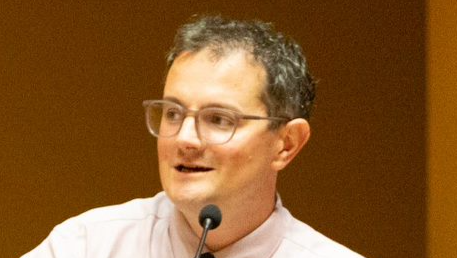
Stephen Wyber is Director, Policy and Advocacy at the International Federation of Library Associations and Institutions. He works with a team focused both on building awareness of the importance of access to information for realising the rights to education, research and culture globally, and supporting advocacy at the regional, national and local levels. His team covers topics from internet governance and sustainable development to culture, heritage and copyright.
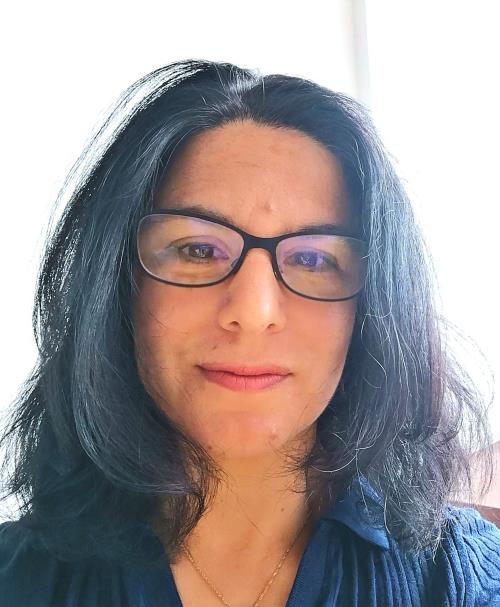
Zeynep Varoglu is the Senior Programme Specialist in the Universal Access to Information Section of the Communications and Information Sector at UNESCO Headquarters in Paris. Ms. Varoglu‘s work currently focuses on the implementation of the UNESCO OER Recommendation and the UNESCO ICT Competency Framework for Teachers (ICT CFT) as well as initiatives in open, distance, flexible and online education. Ms Varoglu holds a Bachelor of Arts (B.A.) from the University of Toronto and a Master of Education (M.Ed) from the Ontario Institute for Studies in Education (O.I.S.E.), University of Toronto.
-
 C1. The role of governments and all stakeholders in the promotion of ICTs for development
C1. The role of governments and all stakeholders in the promotion of ICTs for development
-
 C3. Access to information and knowledge
C3. Access to information and knowledge
-
 C4. Capacity building
C4. Capacity building
-
 C7. ICT applications: benefits in all aspects of life — E-learning
C7. ICT applications: benefits in all aspects of life — E-learning
-
 C11. International and regional cooperation
C11. International and regional cooperation
This session relates mainly to WSIS Action Line C4 - Capacity building and C7 - E-Learning as well as C3 - Access to information. It focuses on the sharing of openly licensed educational content for equitable access to knowledge and information.
-
 Goal 4: Ensure inclusive and equitable quality education and promote lifelong learning opportunities for all
Goal 4: Ensure inclusive and equitable quality education and promote lifelong learning opportunities for all
-
 Goal 5: Achieve gender equality and empower all women and girls
Goal 5: Achieve gender equality and empower all women and girls
-
 Goal 9: Build resilient infrastructure, promote sustainable industrialization and foster innovation
Goal 9: Build resilient infrastructure, promote sustainable industrialization and foster innovation
-
 Goal 10: Reduce inequality within and among countries
Goal 10: Reduce inequality within and among countries
-
 Goal 16: Promote just, peaceful and inclusive societies
Goal 16: Promote just, peaceful and inclusive societies
The UNESCO OER Recommendation supports Member States in the creation of inclusive knowledge societies and achievement of the 2030 Agenda for Sustainable Development, namely SDG 4 (Quality education), SDG 5 (Gender equality), SDG 9 (Industry, innovation and infrastructure), SDG 10 (Reduced inequalities within and across countries), SDG 16 (Peace, justice and strong institutions) and SDG 17 (Partnerships for the goals).